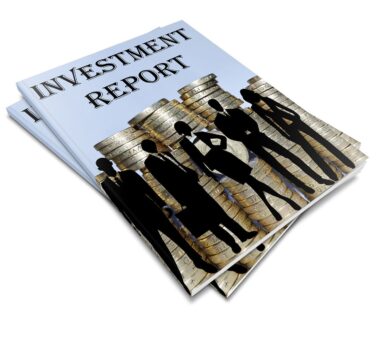Latest Updates in GAAP Standards: What Businesses Need to Know
The Generally Accepted Accounting Principles (GAAP) in the United States represent a framework of accounting standards, principles, and procedures used by businesses. These standards ensure consistency and transparency in financial statements, promoting confidence among investors, regulators, and the general public. As a result, recent updates in GAAP standards are crucial for businesses of all sizes to comprehend and adapt to the evolving regulatory environment. Compliance with these standards is not only a legal obligation but also an essential component of effective financial management, enabling organizations to make informed decisions. With frequent updates driven by changing market conditions and economic factors, it is vital for financial professionals to stay informed and active in training related to these standards. Awareness of the latest changes can help mitigate compliance risks, enhance credibility to stakeholders, and improve financial reporting quality. The Financial Accounting Standards Board (FASB) is responsible for establishing and managing GAAP, addressing relevant feedback from various stakeholders. Their mission includes ensuring that the standards reflect current best practices in the industry while facilitating transparent and comparable financial reporting for all organizations.
To remain compliant and competitive, businesses must monitor the updates published by the FASB and gear up for potential impacts on their financial reporting processes. For example, significant recent changes pertain to revenue recognition and lease accounting principles. These two areas have undergone overhauls to better reflect the economic realities of transactions and the obligations that arise from them. The implementation of these updates may require businesses to revise existing accounting policies, update financial systems, and enhance training for accounting staff. In order to strategically navigate these changes, organizations must assess the degree of impact on their day-to-day operations. Failure to respond promptly to updates can lead to inaccurate reporting, compliance risk, and, ultimately, financial reputational damage. Consequently, it is wise to establish a dedicated team or assign responsibilities to individuals who can closely monitor changes in GAAP and oversee implementation efforts. This proactive approach will facilitate smoother transitions during updates, ensuring that companies are well-equipped for audits and investor scrutiny.
The Impact of Revenue Recognition Standards
Revenue recognition is a core principle of GAAP and has a profound effect on how businesses report their financial performance. The implementation of the new framework requires organizations to recognize revenue when it is earned, shifting away from the previous approach based primarily on the transfer of risks and rewards. This change emphasizes the importance of the timing of revenue recognition, significantly impacting financial statements. Many companies are now required to evaluate whether their revenue transactions comply with the new standards, considering the nature of contracts and obligations involved. Adapting to this updated standard could involve revising contracts, evaluating customer relationships, and redefining revenue streams. Therefore, businesses must develop robust processes to ensure compliance with these new rules, not only for statutory reporting purposes but also for internal decision-making. Proper implementation will aid in providing clearer insights about profitability and allow businesses to better manage financial expectations. Thorough analysis and effective communication with stakeholders will also play a critical role in demystifying any changes associated with revenue recognition policies.
Another critical area of update under GAAP is related to lease accounting, particularly in how organizations handle lease liabilities and assets on their balance sheets. The latest standards require organizations to recognize lease assets and liabilities for operating leases—those previously kept off the books—leading to significant changes in financial statements. This shift aims to provide a more transparent view of a company’s financial obligations, ultimately aligning with global accounting standards. As such, businesses need to identify leases classified under the new standards and determine the financial implications of recognizing lease liabilities. This adjustment may involve significant changes to how leased assets are shown in financial reports, which could impact key performance indicators used by investors, creditors, and management. Moreover, organizations should review their existing lease agreements to ensure compliance and adjust their accounting strategies accordingly. Ignorance of these changes can misrepresent a company’s financial position, leading to adverse consequences in financial assessments and business operations.
The Importance of Ongoing Training
In light of these updates, ongoing training and education for accounting staff become vital. Investing in professional development related to GAAP standards ensures that financial professionals are equipped with the necessary skills to navigate the evolving regulatory landscape. Financial reporting and accounting teams should regularly participate in seminars, webinars, and workshops focused on understanding changes and garnering insights to implement them effectively. Additionally, organizations can foster a culture of continuous learning among their teams by encouraging collaboration with external experts or consultants. Peer discussions and knowledge-sharing platforms within organizations can help spread awareness and build collective expertise. Accurate financial reporting directly correlates with the overall financial health of an organization; thus, training staff in the latest GAAP standards not only ensures compliance but also minimizes risks related to financial errors. Empowered teams can better strategize and optimize the reporting process, ultimately benefiting the company as it seeks to improve its market position and meet stakeholder expectations.
As businesses adapt to the ever-evolving financial landscape driven by GAAP updates, it is crucial to leverage technology effectively. Advanced accounting software can be an invaluable ally in streamlining the financial reporting process, ensuring compliance, and enhancing data accuracy. Automating processes can significantly reduce the potential for human error while freeing up skilled professionals to focus on analysis and interpretation, rather than just rote record keeping. In addition, utilizing data analytics tools can provide management with deeper insights into financial performance, supporting informed decision-making. Businesses should invest in robust systems capable of managing the complexities associated with revenue recognition, lease accounting, and other GAAP standards. Modern financial systems must be adaptable to accommodate future changes, allowing organizations to stay ahead of shifts in regulations. Moreover, regular auditing of these systems is necessary to ensure ongoing compliance and transparency. Organizations prioritizing technology and innovation in their financial reporting will not only meet regulatory obligations but can also achieve competitive advantages in the marketplace.
Final Thoughts
In conclusion, the latest GAAP updates present both challenges and opportunities for businesses. Clear understanding and compliance with these standards are paramount, as they can significantly impact financial reporting and overall strategic planning. As organizations navigate this regulatory environment, it is essential to embrace ongoing training, enhance financial systems, and implement proactive strategies to address the changing dynamics. Fostering a culture of compliance and financial accuracy will not only mitigate risk but also enable businesses to maintain a trustworthy relationship with stakeholders. The landscape of accounting continues to evolve, and being well-prepared to adapt is key to long-term success. Companies need to remain committed to internal assessments and reviews to ensure their accounting practices align with GAAP standards. For those who respond effectively to these changes, the benefits can be substantial in terms of improved financial reporting, investor confidence, and operational efficiency. By staying informed and agile, businesses can better position themselves for future growth while upholding transparency in their financial statements.
Overall, the path to GAAP compliance is ongoing and requires diligence. Organizations that actively embrace changes in the accounting framework can thrive in ever-volatile economic conditions. Adapting to new standards is not merely a reactive process but a proactive strategic pursuit by firms committed to excellence in financial reporting. By doing this, they can establish themselves as leaders in their industries, synonymous with accuracy, transparency, and reliability. The transition to new standards may seem daunting initially, but with the right approach and resources, businesses can successfully navigate this complex territory. Commitment to ongoing learning and adaptation is what distinguishes successful organizations in the face of continuous change in financial reporting standards. For many businesses, the challenge will ultimately result in more effective reporting practices and stronger operational foundations. This ultimately leads to greater stakeholder trust, improved strategic decisions, and sustained success. Keep an eye on GAAP developments and be proactive in training staff and utilizing modern systems to ensure compliance while enhancing overall financial performance.





